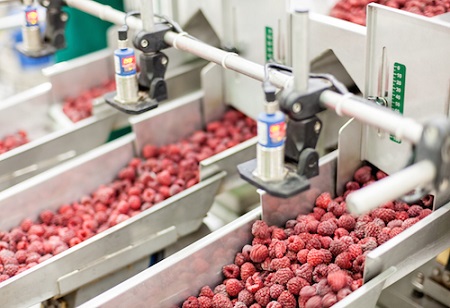One of the key industries that are expected to grow rapidly in the coming years is the Food Processing Industry. With numerous opportunities available in various other industries, the future of the food processing market looks promising. According to a recent report, the Food Processing market is anticipated to reach an estimated USD 4.1 trillion by 2024 with a CAGR of 4.3 percent from 2019 to 2024.
The surge in demand for packaged and processed food products in developing economies is the fundamental factor driving the food processing market. Other factors responsible for the growth of this sector include the rise in demand for ready-to-eat food products, changing consumer lifestyle, and increasing disposal incomes and innovation in technology.
India is the 6th largest Food & Grocery market in the world. This market further constitutes almost 65 percent of the total retail market in the country and the food ecosystem proffers huge opportunities for investments with stimulating growth in the food retail sector. The Ministry of Food Processing Industries has taken necessary measures and initiatives to boost investments in the food processing industry as this industry plays a major role in connecting Indian farmers to consumers not only in the domestic market but also in the international markets.
“The food processing industry ensures a seamless supply of food to consumers. The livelihood of lakhs of farmers is dependent on the uptake of their produce by the industries,” said Union Food processing minister Harsimrat Kaur Badal, while emphasizing on the importance of the food processing sector in the overall economy.
Badal while writing to all state chief ministers on urging them to provide relief in electricity charges to the industry, which is facing a liquidity crunch due to lockdown, stated, “One of the critical components of the food processing industry is the power-consuming cold storage infrastructure. The cold stores need to run 24X7 to preserve the stored goods. The compressors cannot be shut down even when the capacity is not fully utilized. The movement of perishables to and from cold stores has considerably reduced during the lockdown period and has led to a severe liquidity crunch for the promoters.”
“Due to COVID related restrictions, several units had to face extended lockdowns with unsold inventories and mounting fixed cost. The industry needs to be supported by the government to tide over this unprecedented crisis,” she added.
